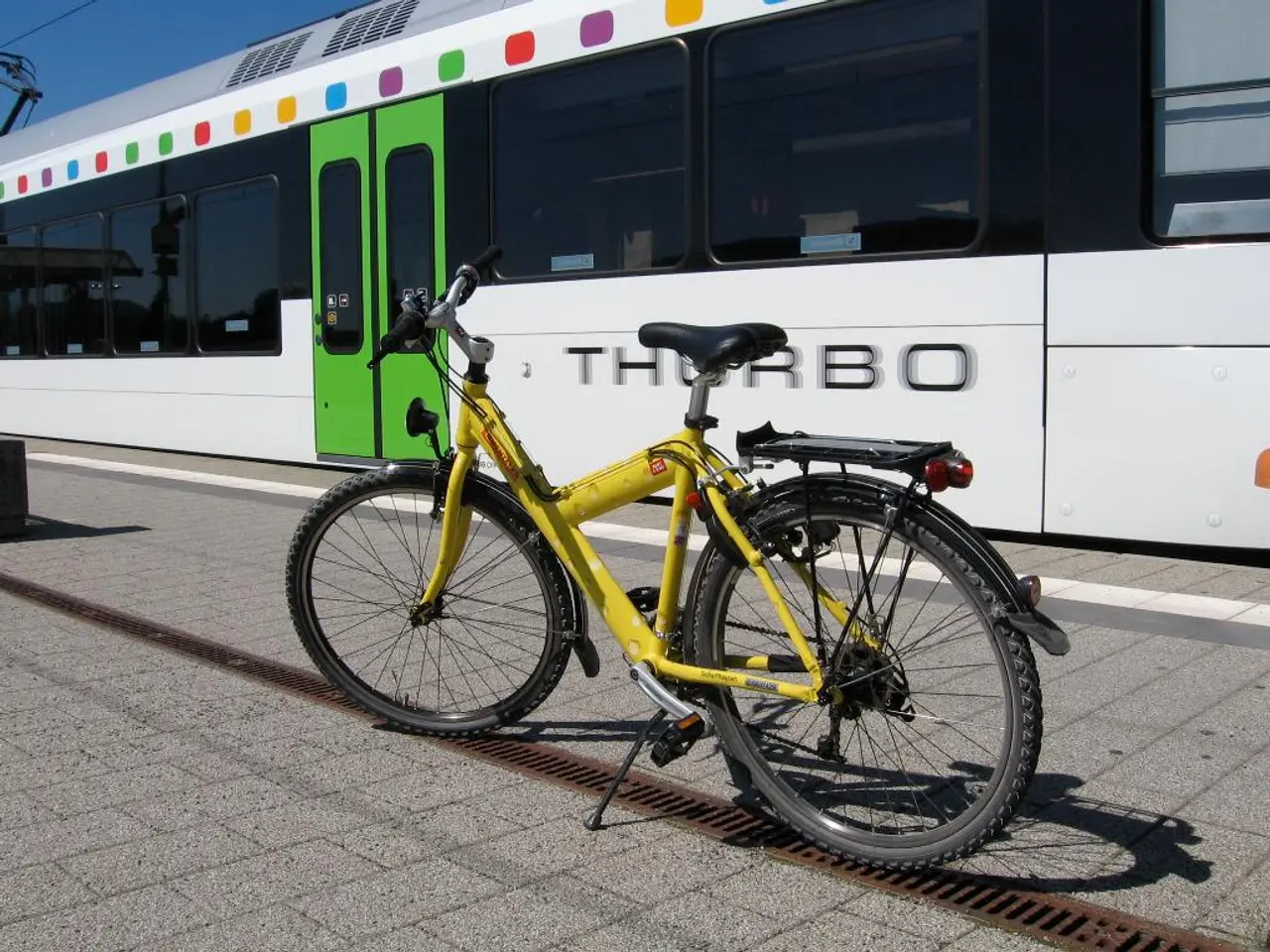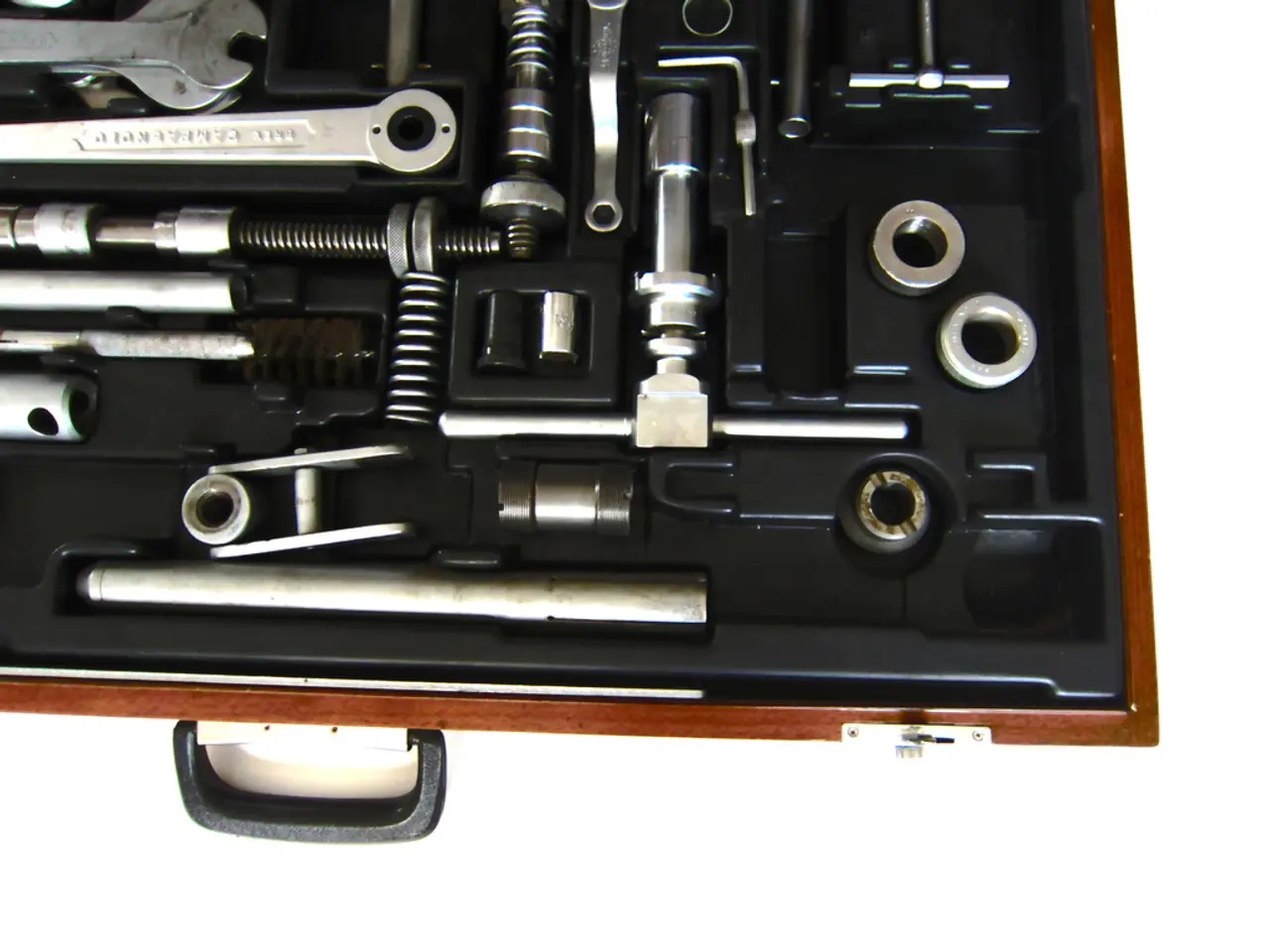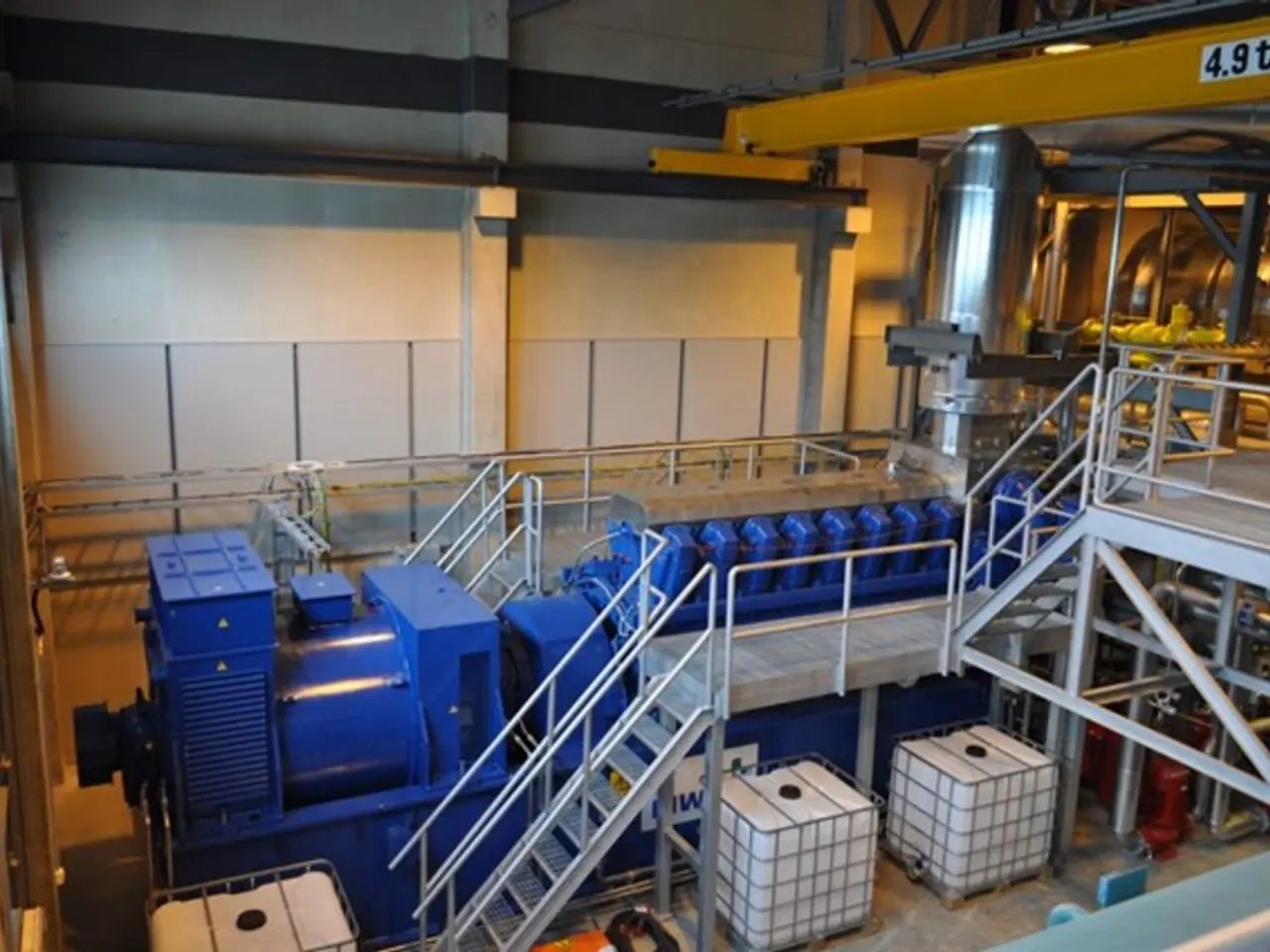Testing Electricity-Powered Truck: Man and Dettendorfer Evaluate Nighttime E-Truck Logistics
After several years of preparation, the use of electric trucks for night-time transport on the Brenner route between Raubling, Germany, and Bolzano, Italy, is now a reality. A four-week pilot field test, led by MAN Truck & Bus and the freight forwarder Dettendorfer, is currently underway from July to August 2023 [1][2][3][4].
This project harnesses the regulatory exemption granted in 2021 that allows fully electric trucks to bypass the night-time driving ban on the A12 Inntal motorway between Italy and Austria, unlike diesel trucks [1][2][3][4].
Reducing CO2 Emissions
Each MAN eTruck used on the Brenner route can save approximately 95 tonnes of CO2 annually due to zero tailpipe emissions and high energy recuperation rates, which reach up to 40% on this mountainous route [1][2][3][4]. With 300 vehicles daily, the potential annual CO2 savings could reach up to 28,000 tons.
Easing Traffic Flows and Reducing Congestion
By permitting electric trucks to operate at night, these vehicles help ease traffic flows and reduce congestion on this heavily trafficked alpine corridor, which traditionally experiences daytime bottlenecks from diesel truck restrictions and bans during nighttime hours [2][3][4]. This contributes to a more balanced and continuous traffic flow across 24 hours.
Economic Advantages
Electric trucks exhibit a total cost advantage of around 15% compared to diesel trucks due to fuel savings, lower maintenance, and operational efficiencies. The MAN eTruck’s capability to cover up to 800 km overnight including a charging stop enables competitive long-distance logistics, making economic sense for haulage companies [1][2][4].
Additionally, electric trucks benefit from lower toll costs, with over €60,000 annual toll savings per truck on the Brenner route [1][2][4].
Additional Benefits
The test highlights that with proper charging infrastructure expansion, electric trucks can transform freight transport on this major European corridor by enabling green commercial vehicle corridors and more sustainable logistics practices [3].
The eTruck is perceived as roughly half as loud as a conventional diesel truck during accelerated acceleration, resulting in a difference in sound pressure level of around twelve decibels [2][3]. This significant noise emission reduction in the Inn Valley and the Brenner Pass area enhances local environmental quality [2][3].
Looking Ahead
The ongoing pilot demonstrates that nighttime electric truck freight transport on the Brenner route effectively reduces CO2 emissions, mitigates congestion by enabling night flows, and provides economic benefits through toll savings and overall operational cost advantages [1][2][3][4].
As the project progresses, the focus will be on refining charging infrastructure, expanding the number of participating vehicles, and evaluating the overall impact on the region's traffic and environment. The success of this pilot could pave the way for a wider implementation of electric trucks in night-time freight transport across Europe.
[1] MAN Truck & Bus AG
[2] Electrify Europe
[3] Transport & Environment
[4] Clean Energy Wire
Incorporating electric trucks into night-time transport on the Brenner route isn't only beneficial for freight logistics, but also for the environment, as each eTruck can save around 95 tonnes of CO2 annually [1][2][3][4]. The use of technology in these vehicles offers economic advantages, with electric trucks exhibiting a total cost advantage of about 15% compared to diesel trucks [1][2][4].
This project, supported by organizations such as MAN Truck & Bus, Electrify Europe, Transport & Environment, and Clean Energy Wire, also aims to ease traffic flows and reduce congestion in the alpine corridor by permitting electric trucks to operate at night, contributing to a more balanced and continuous traffic flow across 24 hours [2][3][4].




